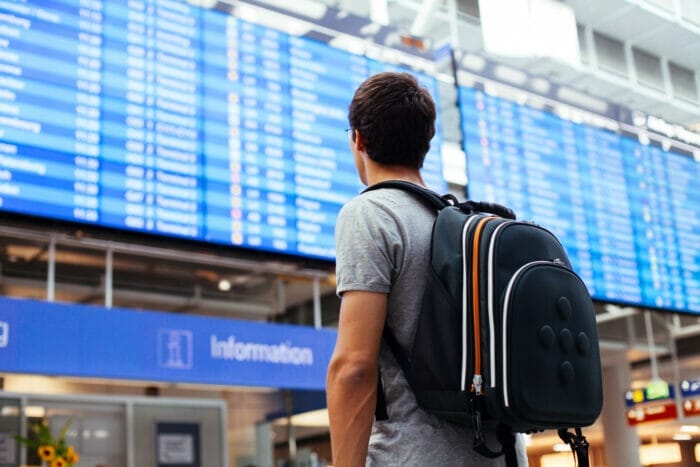
Traveling to other countries can be a wonderful and enriching experience, but sometimes disaster strikes. Foreign travelers may find themselves caught up in anything from a natural disaster to civil unrest. The good news is, if you’re a U.S. citizen – either American-born or naturalized — you can get assistance from the U.S. Department of State during times of crisis. Read on to learn how the U.S. government can, and can’t, help you while abroad.
1. Emergency Assistance

During a crisis, the State Department can assist U.S. citizens in need of emergency help. This assistance may include coordinating evacuations, providing information on safe havens or medical facilities, and facilitating communication with family members. The agency recommends all travelers sign up for the Smart Traveler Enrollment Program (STEP) to receive the latest safety updates and allow the State Department to locate and assist you more efficiently.
2. Travel Advisories and Alerts
The State Department issues travel advisories and alerts to inform citizens about potential risks and hazards in specific countries or regions. These advisories range from Level 1 (Exercise Normal Precautions) to Level 4 (Do Not Travel). Travelers are strongly encouraged to review these advisories before planning or embarking on international trips. While the State Department can provide information and guidance, the decision to travel ultimately rests with the individual.
3. How to contact the State Department during a crisis

- Task Force Alert: During certain crises, the Department of State activates the Task Force Alert system. This online platform allows someone to inform the agency that they or their loved ones are in the affected area. Consular officers use this information to locate U.S. citizens and offer emergency consular assistance. Keep in mind this service does not automatically notify emergency medical or law enforcement officials. Therefore, those requiring immediate emergency assistance should reach out to local responders directly. The Task Force Alert system is solely designed to provide the Department of State with information about U.S. citizens in the affected area.
- Email: The State Department may establish a crisis-specific email address that will be publicized in their messaging and on travel.state.gov. By contacting this email address, you’ll receive a reply containing the latest information about the crisis and a checklist of essential details required by the agency to offer emergency consular assistance.
- Phone: For immediate assistance, individuals can call the Department of State at 1-888-407-4747 (from the United States and Canada) or +1-202-501-4444 (from overseas). Note that during severe crises or situations where numerous U.S. citizens are affected, hold times to speak with a person may be longer than usual. Therefore, it’s a good idea to explore other crisis-specific contact methods, such as the internet or email, for contacting the agency.
If you are not a U.S. citizen, it’s best to contact the nearest embassy or consulate of your nationality. Additionally, aid organizations like the Red Cross can provide further information.
4. Limitations of the State Department
It’s important to understand the limitations of the State Department. It cannot override the laws or legal systems of foreign countries, secure the release of individuals from foreign custody, or provide legal representation. In situations where legal or judicial issues arise, the State Department can provide a list of local attorneys and offer guidance, but they cannot intervene directly in legal matters.
Additionally, the State Department’s resources are not limitless, and they may face logistical challenges during large-scale crises. Their ability to assist in remote or high-risk areas may be limited due to various factors, including local conditions and access constraints.
When planning international trips, staying informed through the State Department’s travel advisories, enrolling in STEP, and purchasing comprehensive travel insurance are all proactive steps travelers can take to mitigate potential risks.